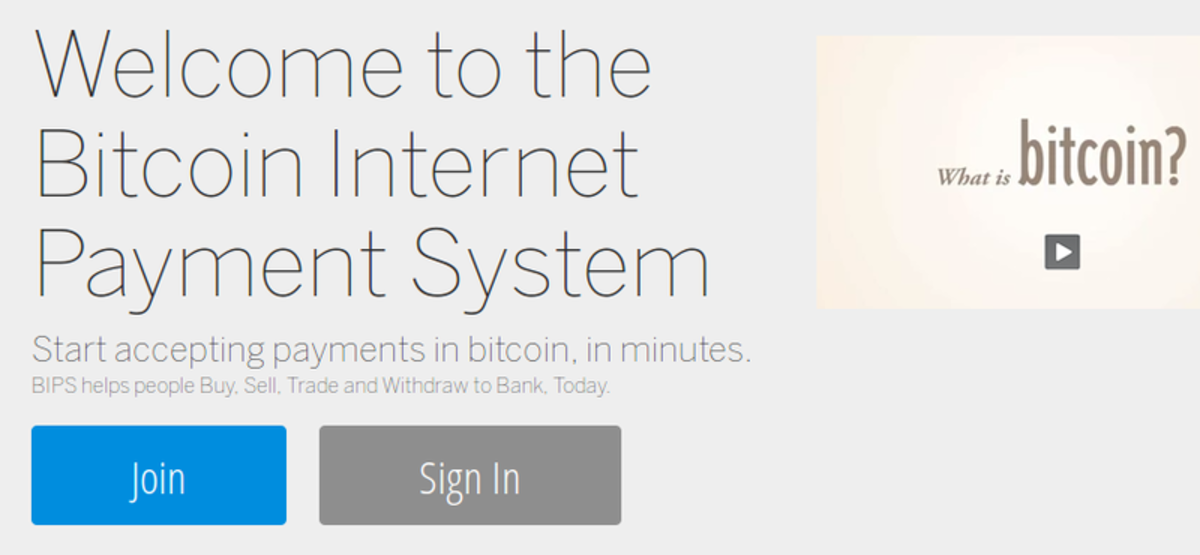
Adam Harding and Kris Henriksen, the two people currently in charge of the popular Bitcoin payment processing platform WalletBit, have come up with a new and improved merchant platform: BIPS. BIPS brings a number of improvements over WalletBit including a new user interface, an easy-to-use REST API for interacting with the service automatically and, most importantly, no fees for the basic Bitcoin service. Instead, BIPS will make its money on a variety of complementary services, including user-encrypted cold storage, having fees automatically deposited to one’s bank account, and having one’s funds automatically converted to USD on MtGox to insure against sudden drops in the Bitcoin price.
BIPS is not the first service to make such an offer; basic Bitcoin payment processing with MtGox or Coinbase has been free for months, and using MtGox directly will be cheaper than doing so through BIPS and paying its 0.89% fee. BIPS will be cheaper than BitPay for merchants [NOTE: On 25 March 2013 BitPay lowered their fees to 0.99% for both processing bitcoins and if the funds are converted into fiat currencies] converting to fiat currency, with a conversion fee of 2.50% internationally (although not cheaper than Coinbase’s 1% in the US), but for merchants who intend to receive Bitcoin directly it may be difficult to see why merchants should use BIPS instead of Coinbase or MtGox. But where BIPS intends to make up for the costs that it does have is ease of use. Its API services are very easy to work with; BIPS shows on their front page how to construct a URL to create an invoice, and in the merchant section it features a simple form in which you enter a callback URL and an optional “secret” parameter, and any payments that a customer makes will automatically lead to a notification being sent to the URL. Actually handling callback URLs and knowing when to make invoices is still the responsibility of the merchant, but BIPS makes the merchant integration side as easy as possible. More features will soon be added, including API calls to send money to a Bitcoin address, phone or email address, and aside from the planned API upgrades there will also soon be options like exporting transactions to an Excel spreadsheet. Like WalletBit, BIPS also provides an e-wallet, and there too it intends to make the experience as easy as possible. Users can sign in using Google, Twitter or Facebook and be logged into their wallet already as they browse the internet. For merchants, BIPS has a mobile checkout application available already. “We hope to provide the best checkout experience for customers using bitcoin to pay,” Henriksen writes, “and the best experience for merchant as a merchant bitcoin gateway.”
BIPS brings the same level of security as WalletBit, and in many cases even greater. Multifactor authentication is available in the form of Google Authenticator and WalletBit’s SecureCard, a matrix of letters and numbers that can be printed out on a piece of paper that the login process asks for a specific cell from. On Monday, BIPS will also add IP guard, limiting account access to specific IP addresses. On the server side, BIPS will store the majority of merchants’ funds in cold storage, backing it up to over a dozen hard drives running RAID 6 as well as archival tape, and the rest on a hot wallet to handle withdrawals. The exact percentage of funds placed into cold storage is based on an algorithm first used at WalletBit, which attempts to predict how much money merchants are likely to withdraw. Currently, Henriksen is unable to give an exact number for the percentage of merchants’ bitcoins that will be placed in cold storage, although the more merchants BIPS can sign up the closer to 100% this value will be. There is also another option of 100% user-encrypted cold storage, at a cost of 0.89%, in which you supply a password with which your wallet is encrypted client-side, and then stored by BIPS in the same cold-storage facility as that used by regular cold storage with the added protection that even they cannot access your funds. Starting Monday, merchants will also be able to have your merchant revenue sent directly to this cold storage.
WalletBit is not disappearing; the old service is still available at walletbit.com for those who want to use it. However, for new merchants there is no reason to use it instead of BIPS and Henriksen hopes that users will see the benefit in switching to BIPS. WalletBit’s eWallet, however, will soon be removed, although it will not be missed by many; the 0.89% fee on the wallet unfortunately turned most potential users away. BIPS’s wallet service is free, so it will hopefully find much more usage. BIPS already has several merchants in the works, and further announcements from BIPS on the topic are soon to come.










